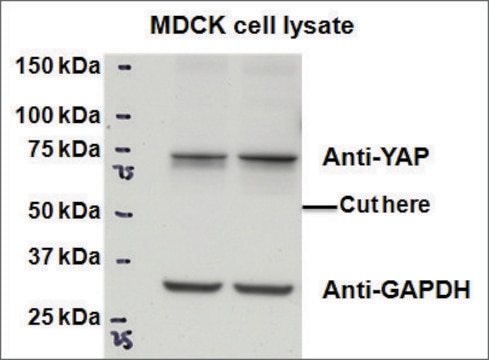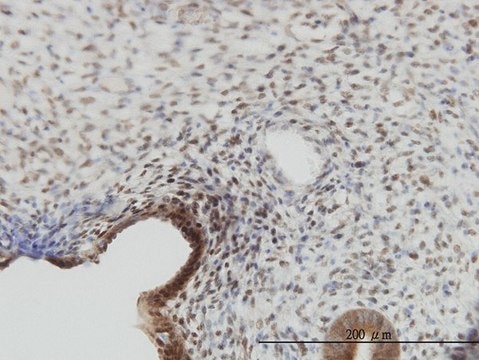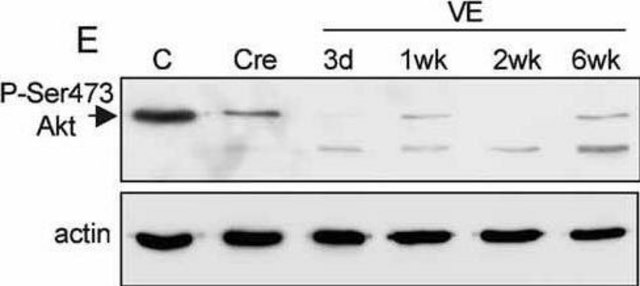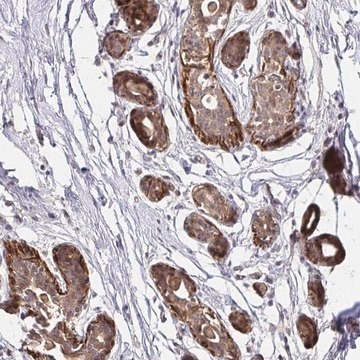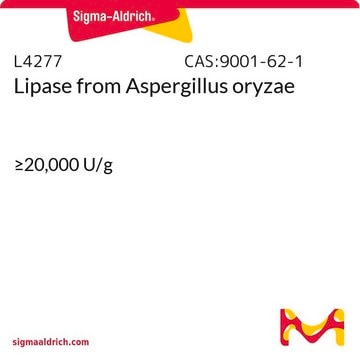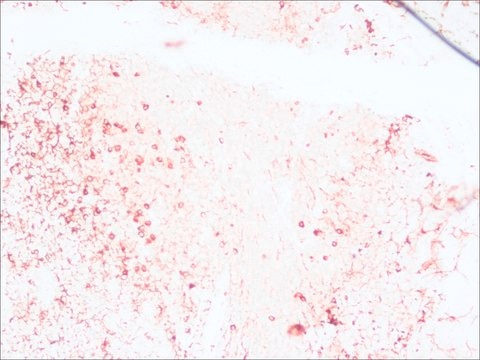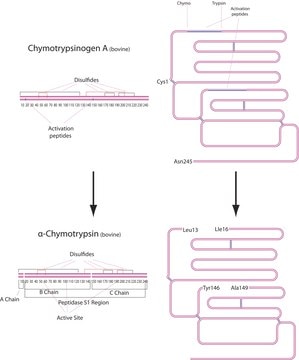Y4770
Anti-YAP1 (C-terminal) antibody produced in rabbit

~1 mg/mL, affinity isolated antibody, buffered aqueous solution
Synonym(s):
Anti-YAP, Anti-YAP2, Anti-YAP65, Anti-Yes-associated protein 1, 65kDa
About This Item
Recommended Products
biological source
rabbit
Quality Level
conjugate
unconjugated
antibody form
affinity isolated antibody
antibody product type
primary antibodies
clone
polyclonal
form
buffered aqueous solution
mol wt
antigen ~65 kDa
species reactivity
human
enhanced validation
recombinant expression
Learn more about Antibody Enhanced Validation
concentration
~1 mg/mL
technique(s)
western blot: 0.5-1 μg/mL using HEK-293T cells co-transfected with human YAP1 and c-Abl
UniProt accession no.
shipped in
dry ice
storage temp.
−20°C
target post-translational modification
unmodified
Gene Information
human ... YAP1(10413)
mouse ... Yap1(22601)
rat ... Yap1(363014)
Related Categories
General description
Specificity
Immunogen
Application
Immunoprecipitation (1 paper)
Western Blotting (1 paper)
Biochem/physiol Actions
Physical form
Disclaimer
Not finding the right product?
Try our Product Selector Tool.
recommended
related product
wgk_germany
WGK 3
flash_point_f
Not applicable
flash_point_c
Not applicable
ppe
Eyeshields, Gloves, multi-purpose combination respirator cartridge (US)
Certificates of Analysis (COA)
Search for Certificates of Analysis (COA) by entering the products Lot/Batch Number. Lot and Batch Numbers can be found on a product’s label following the words ‘Lot’ or ‘Batch’.
Already Own This Product?
Find documentation for the products that you have recently purchased in the Document Library.
Our team of scientists has experience in all areas of research including Life Science, Material Science, Chemical Synthesis, Chromatography, Analytical and many others.
Contact Technical Service

